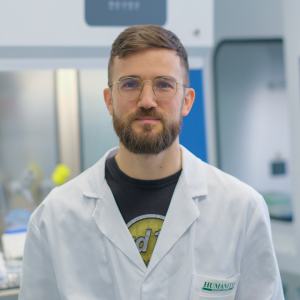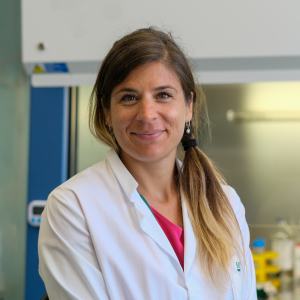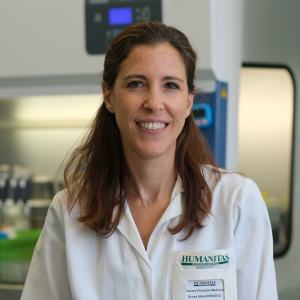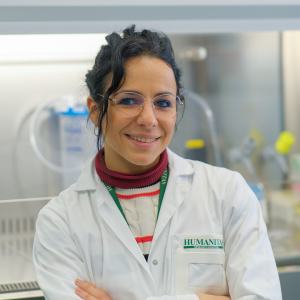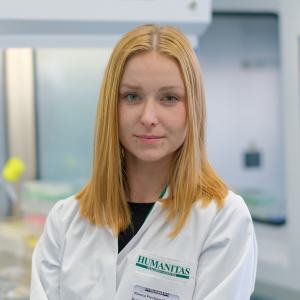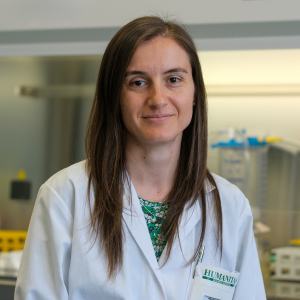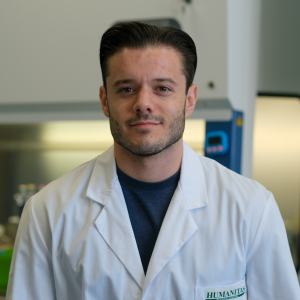Research Group
Piscuoglio Group
Precision Medicine Lab
Piscuoglio’s lab aims to accelerate the application of precision medicine in cancer – identifying clinically relevant predictive biomarkers and novel drug targets – by leveraging emerging technologies such as ex vivo 3D models in combination with multiomics profiling and artificial intelligence, fostering strategic partnerships and conducting translational research.
The Challenge
Human cancers are underpinned by molecular aberrations and show remarkable molecular and clinical heterogeneity. This variability means that standard treatments often fail to be effective for all patients, leading to suboptimal outcomes and adverse effects. The complexity is further compounded by the presence of diverse genetic aberrations that drive carcinogenesis, making it imperative to identify specific biomarkers and therapeutic targets unique to each cancer type and subtype. Our research is crucial in tackling these issues, as we strive to develop personalized therapeutic strategies that enhance treatment efficacy, improve survival rates, and minimize side effects. By focusing on precision medicine and leveraging advanced technologies and collaborative efforts, our lab seeks to transform the clinical management of cancer, offering hope for more tailored and effective treatments for patients.
Main research areas
Exploiting cancer vulnerabilities
The discovery and development of innovative drugs have transformed the cancer treatment landscape, leading to significant survival improvements in many cancer types. However, limited efficacy of standard of care, acquired and/or intrinsic drug resistance hampers effective treatment of many cancer types, and the identification and validation of novel drug targets remain one of the major challenges in anticancer drug discovery. To identify new therapeutic options for cancer patients, our lab uses various high-throughput multiomics technologies, such as genomics, transcriptomics, (phospho)proteomics, and metabolomics, to pinpoint genetic and signaling pathways that are aberrant in cancer cells and can be exploited for treatment.
From living tumor biobank to tumor organoids
To enable drug profiling in ex vivo models representative of the molecular diversity of cancers, our laboratory has teamed up with various surgery departments to establish a living biobank composed of patient-derived organoids (PDOs) matched with immune, stromal, and endothelial cells. To better mimic the pathophysiological microenvironment of cancer, we have generated 3D models using the different type of cells isolated from the tissue specimen (assembloids) or using organ-on-chip to maintain the tumor tissue architecture.
Precision drug screening
These tumor models are being used for multi-omics profiling, large-scale drug screening and toxicity studies, and the discovery of targetable cellular interactions. Using cancer-specific models or tumor fragments, we test compounds such as small molecule inhibitors, monoclonal antibodies, and gene therapies designed to target specific molecular pathways or processes essential for cancer cell survival and proliferation.
Selected publications
Analysis of off-tumour toxicities of T-cell-engaging bispecific antibodies via donor-matched intestinal organoids and tumouroids.
DNA Methylation Landscapes of Prostate Cancer Brain Metastasis Are Shaped by Early Driver Genetic Alterations.
Discovery of synthetic lethal interactions from large-scale pan-cancer perturbation screens.
Alterations in homologous recombination repair genes in prostate cancer brain metastases.
GATA3 and MDM2 are synthetic lethal in estrogen receptor-positive breast cancers.
Epigenetic priming in chronic liver disease impacts the transcriptional and genetic landscapes of hepatocellular carcinoma.
Standardizing Patient-Derived Organoid Generation Workflow to Avoid Microbial Contamination From Colorectal Cancer Tissues.
Systematic identification of novel cancer genes through analysis of deep shRNA perturbation screens.
Adenylosuccinate lyase is oncogenic in colorectal cancer by causing mitochondrial dysfunction and independent activation of NRF2 and mTOR-MYC-axis.
Role of specialized composition of SWI/SNF complexes in prostate cancer lineage plasticity.
Genetic profiling using plasma-derived cell-free DNA in therapy-naïve hepatocellular carcinoma patients: a pilot study.
The Genomic Landscape of Male Breast Cancers.
Massively parallel sequencing of phyllodes tumours of the breast reveals actionable mutations, and TERT promoter hotspot mutations and TERT gene amplification as likely drivers of progression.
Hotspot activating PRKD1 somatic mutations in polymorphous low-grade adenocarcinomas of the salivary glands.
Group members


